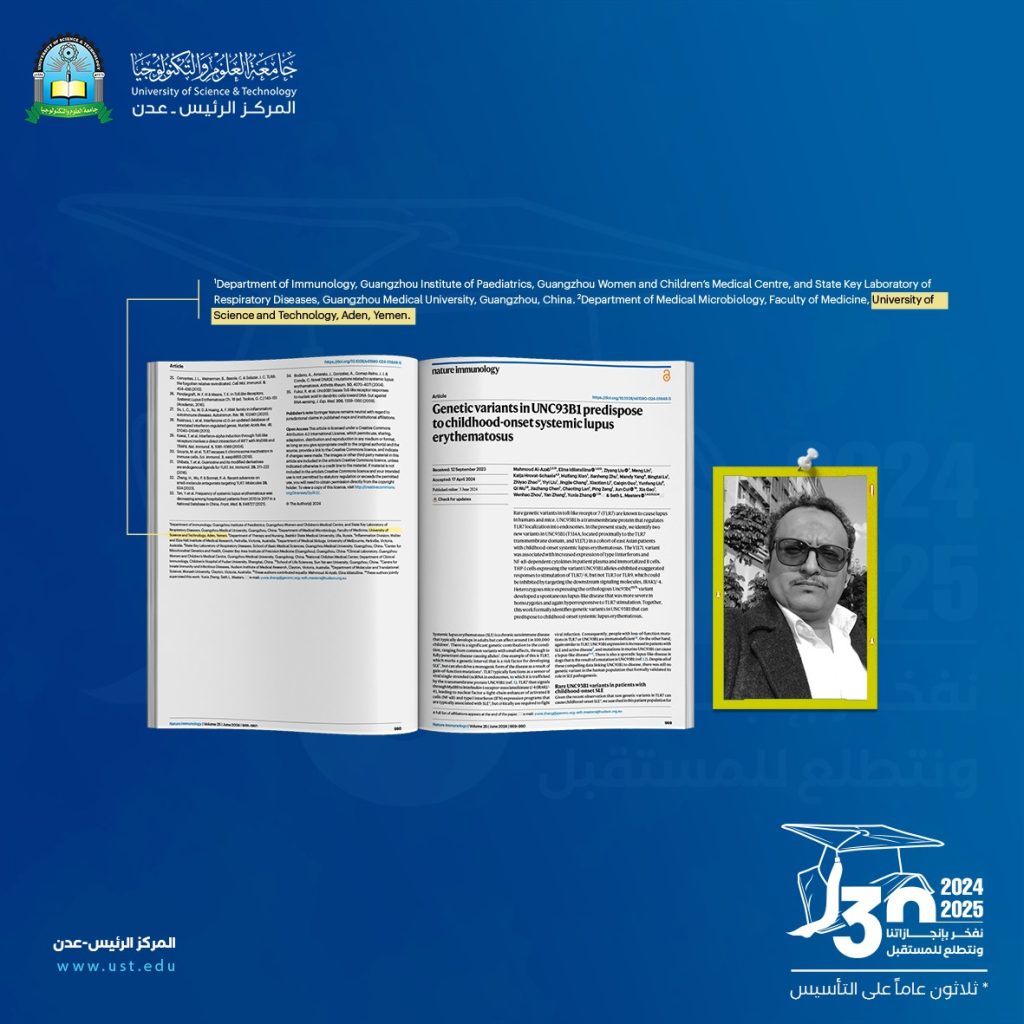Nature International Journal Publishes Scientific Research by Visiting Professor of Immunology at the University of Science and Technology
A new scientific achievement is added to the achievements of researchers at the University of Science and Technology in various countries of the world; as Nature Immunology, the world's leading journal in immunology, published in its latest issue - June 2024 AD, a scientific research that includes a new scientific discovery by researcher Dr. Mahmoud Al-Azab, a Yemeni researcher residing in China, and is one of the researchers contracted with the University of Science and Technology as a visiting researcher.
The published research addressed the role played by the protein (UNC93B1) in exacerbating the excessive response of the innate immune system, and the research was titled:
'Genetic variants in UNC93B1 predispose to childhood-onset systemic lupus erythematosus'.
The research results showed that genetic mutations in the UNC93B1 gene produce a variant protein that makes immune cell sensors sensitive to nucleic acid residues, causing an uncontrolled immune response that exacerbates lupus, and that inhibiting the action of this protein may open the way to developing a drug that ends patients’ suffering.

Three international media outlets have published about the research so far:
MedicalXPress, Mirage News, MSN.
Professor George Tsokos (Harvard Medical School, Massachusetts, USA) said of the research: “This paper presents a new variant that causes a lupus-like disease in humans. This discovery is exciting because it adds a new variant to the growing list of variants underlying what is called monogenic lupus.”
The news has been shared by dozens of scientists around the world so far, welcoming this scientific discovery and distinguished research, through their accounts on the X platform (formerly Twitter), where the number of their followers on the platform exceeds 189 thousand followers. Australian scientist Eric Morand described the research as an “amazing new paper,” and expressed his optimism about the scientific future in this field, expressing his optimism by saying that there is light at the end of the tunnel. Professor of Immunology at Indiana University in the United States, Professor Alexander Dent, commented, saying: “This is interesting. I did not know that there was an early form of lupus.”
Commenting on his achievement, researcher Dr. Mahmoud Al-Azab said: “I hope that this discovery will lead to a breakthrough in understanding the mechanisms of autoimmune inflammatory diseases, and thus developing appropriate treatment.”
The University of Science and Technology congratulates the researcher Dr. Mahmoud Al-Azab on this distinguished scientific achievement, and appreciates his great efforts in the research field, wishing him continued success in his scientific career.
